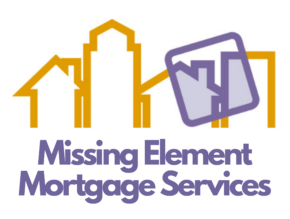Buy-to-let mortgages explained
Buy-to-let (BTL) mortgages are typically for those who want to buy property to rent it out. The rules around buy-to-let mortgages are similar to those around regular mortgages, but there are some key differences.

What are they?
A buy-to-let mortgage is a loan specifically designed for properties that are purchased with the intention of renting them out to tenants.
You may need to consider a buy to let mortgage if you are:
- Buying a house to rent out for additional income.
- Purchasing a holiday home which you intend to let out.
- An accidental landlord, if you’ve decided to let out a property you’re unable to sell, or have inherited.
- You want to purchase a multi unit or HMO
What’s the difference between residential and buy-to-let mortgages?
Most residential mortgages are repayment plans, which means you repay a portion of the loan and interest every month.
Most BTL mortgages are interest-only, you are only be required to repay the mortgage interest each month.
It also means you’ll need a plan for how you’ll settle the outstanding debt when the term ends.
Eligibility requirements are different for BTL mortgages For residential mortgages, this is based on personal income and expenses, for BTL it tends to be on rental income.
The Financial Conduct Authority (FCA) does not regulate some forms of Buy to let mortgages
Here are some of the most common questions we get asked about Buy to Let Mortgages
Buy to Let
How much you can borrow for a BTL mortgage usually boils down to the amount of rental income that you’re expecting to receive from the tenants of the property.
Although there are lenders offering BTL mortgages with no borrowing limit, eligibility assessments are still stringent, and applicants are advised to acquire a rental income forecast from an ARLA-regulated letting agent.
While the majority of buy-to-let mortgage providers base affordability on projected rental income, some will only agree to lend if you bring in a certain amount from other sources – regardless of whether you intend your investment to be self-funding.
If you don’t receive any additional income, seek advice from a broker. They are familiar with the buy-to-let mortgage market, and can point you in the direction of lenders most likely to consider applications based on rental income alone.
Deposit requirements for buy-to-let mortgages are far higher than residential ones, as they are considered a riskier investment.
The standard loan-to-value (LTV) for BTL is around 75-80%, which translates to 20-25% deposit – although some providers may be more generous for the right applicant. Likewise, if you pose a greater risk in other areas (e.g. bad credit or low rental yield), a lender may have higher deposit requirements to balance out the risk.
Generally speaking, the more deposit you’re able to put down, the greater the lender pool and the more favourable the interest rates you’re likely to be offered.
While mortgage providers can be reluctant to lend to people with bad credit history, plenty of lenders are happy to take the bigger picture into account before coming to a decision. There are even specialist bad credit mortgage providers out there.
The type of bad credit, how long ago it occurred and the circumstances surrounding it will impact which lenders are available, the type of products you qualify for, and under what terms. Depending on your situation, you may be asked to pay a higher deposit to offset the added risk, or you may be offered less competitive rates than someone with clean credit.
There are a number of variables at play, so if you have poor credit you’re best off discussing your circumstances with a broker, who can explain your options and point you in the direction of lenders most likely to consider your application.
Most mortgage providers won’t lend to BTL borrowers unless they already own their own home, and some will stipulate that you have to have been a homeowner for over a certain amount of time.
Generally speaking, BTL mortgage providers favour customers with landlord experience, as evidence of a strong track record of managing rental properties will provide additional support to your application.
There are however some providers who are willing to consider BTL applicants that are first-time landlords or even first-time buyers, although you may be limited in your choice of lenders, and there could be caveats attached.
As a general rule, most BTL lenders will only consider applicants over the age of 21 for a BTL mortgage. This is because lenders like to see proof of your ability to manage money (stable income, solid affordability and clean credit) over a minimum three year period.
The number of lenders you have access to may also be limited if you’re over the age of 75; many mortgage providers have maximum age caps for how old you are when you take the mortgage out, and your age when the term finishes.
If you’re concerned that your age will negatively impact your BTL application, get in touch to discuss your options with a broker; they will be able to advise you on next steps, and point you in the direction of specialist lenders with more flexible criteria.
If you’ve got the means and opportunity, becoming a landlord can be a tempting investment prospect. But it’s important to understand the market and what you’re letting yourself in for – why not ask a mortgage broker to explain the process in more detail?
Advantages
As house prices continue to soar, property remains one of the biggest investment opportunities of all time. For prospective BTL landlords, it can be a more than viable means of increasing returns.
Strong rental market
Now is a great time to become a landlord.
Long-term investment opportunities
As well as generating short-term gains from your rental income, property in itself can be a lucrative long-term investment.
House prices continue to increase in value.
Why speak to a specialist broker?
Becoming a buy-to-let landlord is a big commitment
If you have any questions or want to discuss the viability of your prospective BTL investment, a good starting point is to have a chat with an impartial mortgage broker.
Our specialists will take the time to understand your individual requirements and investment goals, and recommend the next steps to take.
If you decide to go ahead, they can point you in the direction of suitable lenders for your circumstances – whether that be a bad credit provider or first-time landlord specialist
